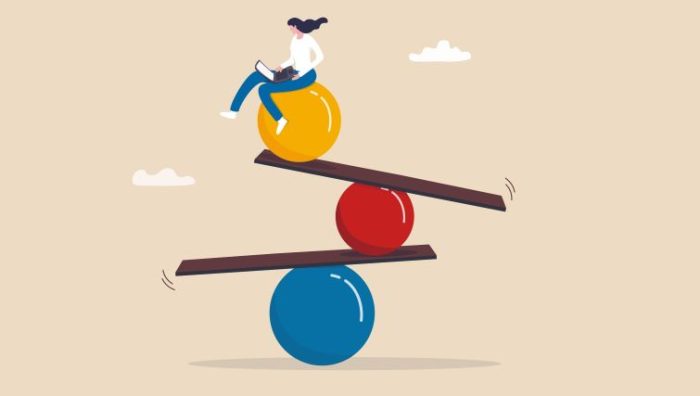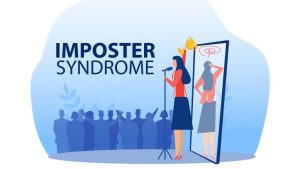The Impact of Work-Life Balance on Employee Wellness
 Publié le 19 December 2023
Publié le 19 December 2023
Understanding the impact of work-life balance on employee wellness is crucial. Prioritizing well-being leads to happier and more productive employees, and benefits the entire organization.
You must have heard the saying, “All work and no play makes Jack a dull boy.”
But have you ever considered that it could also make Jack unhealthy?
Corporate culture often praises overworking, but this mindset could be harming Jack’s motivation and overall well-being. It is important to understand the connection between employee wellness and work-life balance, and how to address the issue and improve it.
In this article, we will delve into the definition of work-life balance, its importance, and common challenges. We will also share key strategies for promoting a healthier work-life equilibrium.
What is Work-Life Balance?
Work-life balance is essential for everyone, including you. It means managing your professional and personal commitments in a way that allows you to live a fulfilling and healthy life. You need to set boundaries, prioritize your needs, and find flexible solutions that work for you.
There is no one-size-fits-all answer to what work-life balance looks like. It is different for everyone and can change over time. It may include:
- Having enough time and energy for your personal life, such as spending time with loved ones, pursuing hobbies, and taking care of yourself physically and mentally.
- Being able to set boundaries between work and personal time. This means not checking work emails or messages outside of work hours, or saying no to extra work when you are feeling overwhelmed.
- Having a flexible work schedule that allows you to meet both your work and personal commitments. This may mean working remotely, having a flexible start and end time, or taking time off when you need to.
The Importance of Achieving Work-life Balance
Achieving a work-life balance has many benefits that can improve various areas of your life. Let’s explore these benefits and understand how they can positively impact your well-being.
- Reduced Stress
Stress is a natural response to the demands of work and life, but if it persists, it can lead to physical and mental health issues, such as anxiety, depression, and burnout, which can negatively impact both your personal and professional life.
To reduce stress levels, it is important to establish clear boundaries between your work and personal life. This may include setting specific work hours and taking breaks throughout the day to rest and recharge.
- Improved Mental Health
Maintaining a work-life balance is essential for your mental health. When work becomes the sole focus of your life, you may start feeling isolated from your social support networks, which can lead to loneliness and depression.
To ensure good mental health, you need to prioritize your social connections and engage in activities outside of work. You can volunteer for community services, and pursue hobbies or interests that you enjoy.
- Enhanced Physical Well-being
Work-life balance isn’t just about your mental health, it also influences your physical well-being. Constantly pushing yourself to meet work and personal demands can lead to physical health issues such as sleep disturbances, high blood pressure, weight gain, and a weakened immune system.
A balanced life allows you to take care of your physical health, exercise, and get adequate rest. This, in turn, can help you to be more productive and focused at work.
- Better Relationships and Social Health
A lack of time and attention for loved ones can strain personal relationships, leading to conflicts and emotional distance. Balancing work and personal life ensures that you have the time and energy to nurture your relationships with family and friends.
These strengthened personal connections not only contribute to enhanced social well-being but also form a robust support network to assist you in effectively navigating life’s myriad challenges.
- Increased Job Satisfaction
Surprisingly, when you can do your work well and still have time for your personal life, you feel more content and excited about your job.
And when you’re happier at work, it can help you do even better, which could lead to more opportunities for growth and better performance in your career.
- Improved Productivity
With a good work-life balance, you can be more productive. Taking breaks and making time for yourself helps you concentrate better and do your job more effectively.
So, it’s a good idea to encourage yourself to take regular breaks and look after your balanced well-being. This can make you happier with your job and get more done.
Work-life Imbalance: Top Challenges
To understand the importance of work-life balance in the workplace, it is essential to recognize the signs of work-life imbalance and the challenges associated with it. Here are some common signs of work-life imbalance:
- High Stress Levels
When work takes up a significant portion of your time and energy, it can lead to high-stress levels. You might constantly feel overwhelmed, and anxious, and find it difficult to relax or unwind. This continuous stress can take a toll on your mental and physical well-being.
- Burnout
Work-life imbalance can push you towards burnout. It is the feeling of being mentally and emotionally exhausted, often accompanied by a sense of detachment from your work and life in general. Burnout can manifest as a complete lack of motivation and a decrease in your overall enthusiasm for your job and personal life.
- Health Problems
Your overall health can deteriorate when you don’t maintain a proper work-life balance. You might experience sleep problems, weight gain or loss, and even more serious conditions like cardiovascular problems, diabetes, and compromised immune function.
- Strained Relationships
In a survey conducted by Zippia, a striking 83% of employees report that their personal relationships are negatively affected by burnout from work.
One of the biggest challenges of work-life imbalance is strained relationships. Your family and friends may start feeling neglected as you prioritize work over spending quality time with them. This can lead to conflicts, emotional distance, and, in some cases, a breakdown of relationships.
- Decreased Job Satisfaction
If you are all about work and nothing else, you might end up feeling less happy with your job. This is because you could miss out on the satisfaction and purpose that comes from other parts of your life. Over time, this can make you lose interest in your work, become less engaged and slow down your progress in your career.
- Reduced Productivity
Struggling to maintain a work-life balance can result in reduced productivity. Constantly being on the go without proper relaxation and downtime can lead to inefficiency at work. Your ability to focus and complete tasks may decline, ultimately affecting your performance.
Factors Affecting Work-life Balance
When it comes to finding the right balance between your work and personal life, there are several factors that can affect this delicate balance. The most influencing factors are as follows:
- Workplace Culture and Policies
Think about your workplace. The way your company operates, its rules, and how people behave there can all impact your work-life balance in the workplace.
For instance, if your job has a culture that encourages long working hours and doesn’t respect personal time, it can make it tough to find that balance. On the other hand, if your workplace values flexible hours and respects your need for time outside of work, it can be a lot easier.
- Technology and Remote Work’s Influence
Technology plays a big role in our lives, including how we work. If your job involves a lot of emails, meetings, or constant connectivity through smartphones and laptops, it can make it challenging to switch off from work when you’re supposed to be off the clock.
Remote work, which means working from home or other locations, can also impact your work-life balance. It can provide flexibility, but it can also blur the lines between work and personal life.
- Individual Choices and Boundaries
Now, think about yourself. Your choices and boundaries matter a lot in achieving work-life balance. It’s about deciding when to say yes and when to say no. If you’re always saying yes to extra work or tasks and find it hard to say no, it can affect your personal life.
Setting clear boundaries, like designating specific times for work and leisure, can help you maintain that balance.
- Shortage of Staff at the Workplace
As a result of persistent staffing shortages, many employees are finding themselves overworked and stretched thin, compelled to take on multiple roles within their job. This increased workload often results in exhaustion and a decline in job performance as these employees struggle under the pressure and demands of their expanded roles. This can even lead to high rates of employee turnover, as people leave their jobs in search of improved balance.
One effective solution for tackling this issue is for companies to outsource certain roles, such as customer service, to dedicated business process outsourcing companies. These third party entities are specialized in handling customer service concerns, alleviating some of the pressure from in-house staff.
Explore some of the best customer service outsourcing companies available.
How to Maintain Work-life Balance
Now that you understand the importance of work-life balance and the challenges involved, let’s answer the question- How to maintain work-life balance?
Let’s explore some strategies to help you achieve this equilibrium:
- Setting Boundaries and Priorities
You have to create a clear line between your work responsibilities and your personal life. Make sure you allocate time for both and don’t let one constantly interfere with the other.
For instance, when you’re with your family or enjoying a hobby, try not to let work-related calls or emails distract you. It’s important to set your priorities straight and stick to them.
By using reliable software like ProofHub, you can prevent work stress from spilling into your personal life. It will help you keep your work organized by tracking time, creating to-do lists, and setting priorities.
- Time Management and Prioritization
Time is a limited resource, so it’s essential to use it wisely. Organize your day by making a schedule or to-do list, placing your most important tasks at the top. You can also try using specific time-management techniques and see if one of them works well for you.
By doing this, you can ensure that you’re addressing your essential work duties while still having time for your personal life.
- Employee Wellness Programs and Benefits
Many employers offer wellness programs and employee benefits to support employee well-being at work. These can include gym memberships, mental health support, flexible work hours, and more. There are apps such as Fresha and similar programs that can make finding local gyms a simple process.
Take advantage of these offerings to improve employee wellness and work-life balance. Make sure to check with your HR department to see what’s available to you.
- Leadership’s Role in Setting an Example
Leaders play a vital role in promoting work-life balance and wellness. When leaders demonstrate a healthy balance between their work and personal lives, it sets a positive example for the entire team.
This can encourage a culture where it helps improve employee well-being at work. It also helps them to prioritize and boost balanced well-being without fearing negative consequences.
Conclusion
In a nutshell, it’s crucial for you to balance your work and personal life for your well-being. Ignoring this balance can make you less motivated and negatively affect your physical and mental health.
The impact of work-life balance on employee wellness cannot be understated. Implementing strategies like setting limits between work and personal time, and time management can help create a happier workplace, leading to more satisfaction and overall better health for you.







